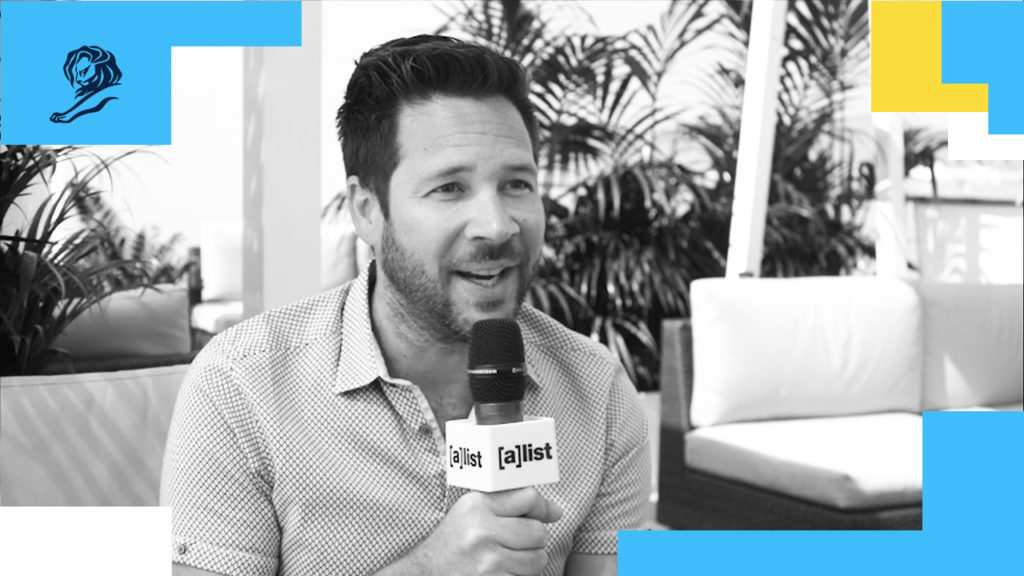Pinterest, which has made recent strides in video advertising, made its presence known at Cannes Lions this year with interactive experiences and sessions that discussed inspiration, hands-on marketing and how technology is impacting the future of creativity.
AListDaily caught up with Eric Edge, head of global marketing communications at Pinterest to talk about the challenges and benefits of personalization in marketing.
Pinterest uses artificial intelligence to learn what users like and adapts to show results in real time. Edge stressed the importance of meeting consumer individuality without changing a brand’s core message.
“‘Brand’ is a very interesting concept,” he said. “Just because you want to personalize content for people doesn’t mean you have to change your story. You can have a solid brand story and very, very solid brand architecture and tweak that a little bit based on who you’re talking to. At its very core, you’re telling the same story—you’re doing just it in a way that’s more relevant and personalized for the audience you’re talking to.”
In the case of Pinterest, it’s a visual platform but its users collect ideas (“Pins”) and go out and purchase or try those ideas as well. Edge says that being able to speak to users on a personal level applies to everything in the marketing space and should not be ignored.
“It’s easy to talk about everything else that’s happening in innovation and technology but at our core, humans are visual people and that’s going to drive things forward when it comes to search or discovery in the future,” said Edge.
Edge served as a juror on the very first Social and Influencer Lion award panel this year—an honor that he called “better than a master class” on social media marketing. He predicted that after seeing the campaigns at Cannes Lions this year, the idea of personalization will go beyond technology.
“At [the] very core of social is personalization. It’s going to define the way that marketers think about their marketing strategies, whether it’s on platforms like Pinterest or even mainstream traditional media like TV. They’re going to think about personalization in an entirely new way and we’ve seen that in a lot of the work this year.”
